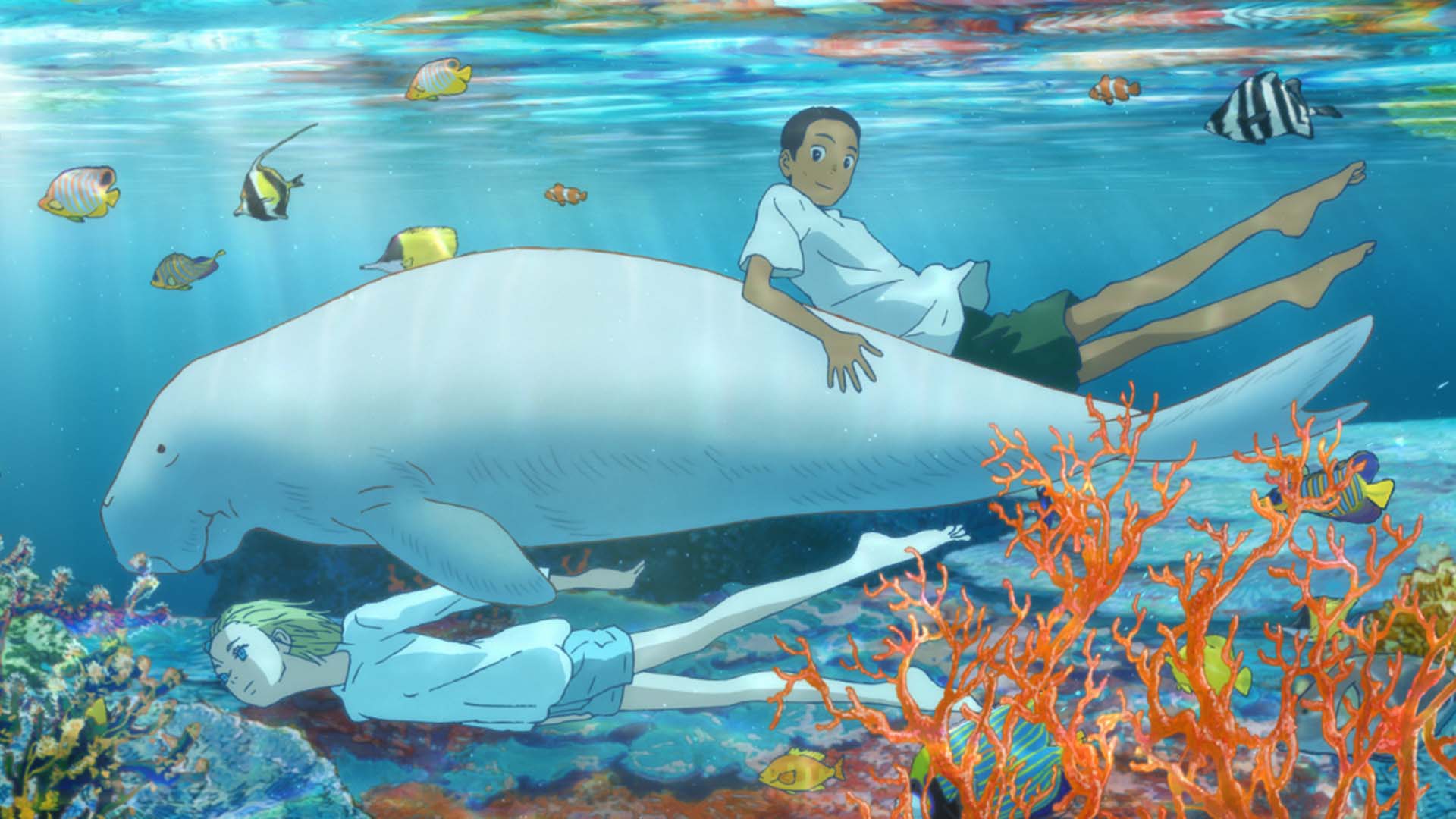Children of the Sea
Brought to the screen with a sea of kaleidoscopic visuals — and a score by a Studio Ghibli veteran — this manga-to-anime adaptation tells an ambitious ecological and cosmic tale.
Overview
UPDATE, March 19, 2021: Children of the Sea is available to stream via Google Play, YouTube Movies, iTunes and Amazon Video.

It's not the first animated film to attempt the feat — or achieve it — but Children of the Sea turns the delights of the ocean's depths into a dazzling spectacle. Where everything from The Little Mermaid and SpongeBob SquarePants to Ponyo and Song of the Sea first swam, this gorgeous Japanese movie follows, although comparing this striking animation to its great underwater predecessors doesn't paint the whole picture. Directed by Ayumu Watanabe and adapted from Daisuke Igarashi's manga of the same name by the author, Children of the Sea also paddles in 2001: A Space Odyssey and Akira's slipstreams. If that sounds like a wild ride, then strap yourself in for more to come. An eco-conscious tale about a lonely 14-year-old girl and two boys raised by dugongs that makes a connection between the ocean's vibrance and outer space's infinite expanse, this is an ambitious movie to say the very least.
Ruka (voiced by Mana Ashida) is Children of the Sea's aforementioned teen outcast. School is out for the summer but, after a violent incident gets her shunned by her peers in her coastal town, she's at a loose end. Only her mother's (Yu Aoi) day-drinking awaits at home, so Ruka ventures to the local aquarium where her marine biologist father (Goro Inagaki) works. It's here that she not only re-ignites an affinity for the water that she's felt since she saw something glimmering in the tank as a small child, but where she also meets kindred spirits Umi (Hiiro Ishibashi) and Sora (Seishū Uragami). Her new pals have a definite advantage over Ruka in the sea-worshipping stakes, though; until they came to live at the aquarium, where they're taken care of by scientists, the siblings dwelled among the ocean's marine life — and they have exceptional underwater abilities to prove it.
Ruka connects with the cheeky, impish Umi and the pale, ethereal Sora just as a series of environmental anomalies start gaining attention — including whale sightings near Manhattan, a meteor crash in the water, and an otherworldly song that's drawing the sea's creatures to one specific spot for a once-in-a-lifetime gathering. Also pertinent: the fact that Umi and Sora seem to be fading, perhaps even dying, thanks to their new life on land; and the possibility that Ruka's link to the duo just might be stronger than anyone imagines.
Children of the Sea could've combined the above components into a somewhat straightforward story — awkward teens, the natural world and supernatural elements have been doing big business in Japan's animated fare of late, including Your Name, Weathering with You and Ride Your Wave — but that's not what Watanabe and Igarashi have in store. They're thinking big, bold and existential, as filtered through the experiences of Ruka and her friends. And, in pondering how everyone has a responsibility to the planet, while also recognising that each individual is a speck in a world far vaster than any one of us will ever encounter, the film's creative talents aren't afraid to dive into seemingly conflicting notions.
Marrying the ecological with the cosmic, Children of the Sea's wide-ranging aims do occasionally threaten to exceed its reach (that Igarashi's manga was published in five volumes between 2007–12 won't come as a surprise). Accordingly, anyone hoping for a linear and logical progression through the feature's narrative, rather than many a flight of fantasy and a last-act burst of mind-bending imagery, is watching the wrong movie. But through its vivid visuals, this eye-catching, heart-swelling gem always conveys a sense of of awe and wonder — and a feeling that, no matter what a certain big entertainment studio keeps telling us, animation has its unique charms. This film could never be remade as live-action, or be used as template for a version with photo-realistic animals.
Indeed, all the special effects in the world can't replicate Children of the Sea's intricate watercolour renderings of the ocean, which look complex, glorious and larger than life. The same applies to the movie's kaleidoscopic array of pictures and hues, the energy and liveliness of its marine ecosystem, and even its detailed human characters, who are clearly animated but never resemble cartoons. Plus, matching its audio to its imagery, Children of the Sea boasts quite the finishing touch. A score by Studio Ghibli veteran Joe Hisaishi (Princess Mononoke, Spirited Away, Howl's Moving Castle — the list goes on) layers the movie with suitably swirling emotion, and the end result easily sweeps audiences away.





